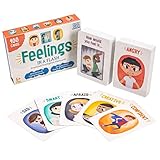Do you want your child to be successful and resilient in all aspects of life? Then it’s time to focus on building their grit and emotional intelligence.
Grit is the ability to persevere and overcome challenges, while emotional intelligence is the ability to recognize and manage one’s own emotions and those of others. Together, these skills can help your child thrive academically, socially, and emotionally.
But how can you as a parent help your child develop these essential skills? In this article, we’ll share 10 tips for building grit and emotional intelligence in your child.
From encouraging perseverance and resilience to modeling positive behaviors, these tips will help your child become a confident and capable individual who can handle whatever life throws their way.
So let’s get started!
Key Takeaways
- Building grit and emotional intelligence is crucial for a child’s success and wellbeing.
- Encourage perseverance and resilience by praising effort, modeling positive behaviors, and helping children develop a growth mindset.
- Self-awareness and empathy are crucial in helping children connect with the emotions of those around them.
- Reinforce positive behaviors by praising effort and persistence, providing constructive feedback, and celebrating achievements.
Define Grit and Emotional Intelligence
Don’t underestimate the power of grit and emotional intelligence – they’re crucial skills for your child’s success and wellbeing.
Grit is the ability to persevere through challenges and setbacks, while emotional intelligence is the capacity to understand and manage one’s own emotions and those of others.
Developing these skills in children has numerous benefits, including improved academic performance, better relationships, and increased resilience.
To teach grit, encourage your child to take on challenges and praise their effort, not just their success. Set achievable goals and help them develop a growth mindset, where they see failures as opportunities for learning and growth.
For emotional intelligence, model positive emotional expression and encourage empathy. Teach your child to identify and label their own emotions, and help them practice active listening and understanding others’ perspectives.
With these strategies, you can help your child develop the essential skills of grit and emotional intelligence for a successful and fulfilling life.
Encourage Perseverance and Resilience
When kids face challenges and setbacks, it’s important to remind them that mistakes and failures are a natural part of learning and growth. Teaching resilience involves practical strategies such as encouraging them to try again, praising their efforts instead of just their achievements, and modeling resilience yourself. These actions can help children build this important quality.
By learning to persevere through difficult times, children gain a sense of self-efficacy and confidence that will serve them well throughout their lives. The benefits of perseverance and resilience in children are numerous. These qualities can help children cope with stress, bounce back from adversity, and achieve their goals.
The role of parents in nurturing grit and emotional intelligence in children cannot be overstated. By providing a supportive and encouraging environment, parents can help their children develop the skills they need to succeed in life. With patience and persistence, children can learn to face challenges head-on and emerge stronger and more resilient than ever before.
Foster Self-Awareness and Empathy
Developing self-awareness and empathy is crucial in helping your kids understand and connect with the emotions of those around them. Teaching mindfulness and emotional regulation can be helpful tools in fostering these skills.
Encourage your child to take a moment to check in with their own emotions and thoughts. This can help them become more aware of their own feelings and better equipped to handle them.
By practicing empathy, your child can develop a greater sense of compassion and understanding towards others. Encourage them to put themselves in someone else’s shoes and imagine how they might feel in a particular situation. This can help them better understand and connect with the emotions of those around them, leading to more meaningful relationships.
As your child grows in their ability to regulate their own emotions and empathize with others, they’ll be better equipped to navigate the ups and downs of life with resilience and grit.
Provide Opportunities for Skill-Building
Offer chances for your kids to learn and grow through hands-on activities that foster skill-building. Providing opportunities for your children to explore and discover new skills in a fun and exciting way can help them develop grit and emotional intelligence. Encourage your kids to participate in youth programs that offer activities such as sports, music, art, or coding. These programs can provide a structured environment for your children to develop discipline, perseverance, and problem-solving skills.
Hands-on activities can also help your kids develop a growth mindset, which is essential for building grit. When your children face challenges, encourage them to see those challenges as opportunities to learn and grow. Teach them that making mistakes is a natural part of the learning process and that it’s okay to fail as long as they learn from their mistakes.
With your guidance and support, your kids can develop the skills they need to face challenges with confidence and resilience.
Model Grit and Emotional Intelligence
To help your kids understand the importance of resilience and determination, show them how to model grit and emotional intelligence in real-life situations. Lead by example and demonstrate how to handle difficult situations with patience and perseverance.
When faced with challenges, express your emotions in a healthy way and encourage your children to do the same. By being open about your feelings and reactions, you can teach them that it’s okay to feel frustrated or disappointed but it’s important to bounce back and keep going.
In addition to modeling grit, it’s important to nurture emotional expression and teach coping mechanisms. Encourage your children to express their feelings and provide a safe space for them to do so. Teach them how to cope with difficult emotions by providing strategies such as deep breathing or journaling.
Lastly, encourage self reflection and help them understand their strengths and weaknesses. By doing so, they can develop a better understanding of themselves and become more resilient in the face of challenges.
Reinforce Positive Behaviors
When it comes to reinforcing positive behaviors in your children, there are three essential keys to keep in mind. First, praise their effort and persistence, not just their achievements. This helps them to develop a growth mindset and understand the value of hard work.
Second, provide constructive feedback that focuses on specific actions they can take to improve rather than criticizing them as a person.
Finally, celebrate their achievements and milestones to let them know that their hard work and dedication are appreciated. By consistently using these strategies, you can help your children build grit and emotional intelligence that’ll serve them well throughout their lives.
Praise Effort and Persistence
You can motivate your child to keep pushing forward by pointing out their hard work and determination, showing them that their persistence is paying off. It is important to recognize progress and improvement in children’s development, especially when it comes to building grit and emotional intelligence.
Here are some ways to praise effort and persistence in your child:
-
Acknowledge the effort: Instead of just praising the outcome, acknowledge the effort your child put in. For example, "I saw how hard you worked on that project. Great job!"
-
Encourage persistence: When your child faces setbacks, encourage them to keep trying. Let them know that their persistence will pay off in the end.
-
Celebrate progress: Celebrate small wins along the way. This will help your child see that their effort is leading to progress and improvement.
-
Use specific feedback: Instead of vague praise like "good job,"use specific feedback that shows your child what they did well. For example, "I really liked how you kept trying even when it was hard. That shows a lot of determination."
By praising effort and persistence, you can help your child develop a growth mindset and build resilience. This will not only benefit them in the short term, but also in the long term as they face challenges throughout their lives.
Provide Constructive Feedback
Now that you have been praising your child’s efforts and persistence, it is important to also provide constructive feedback. Effective communication and active listening are key in this process. It is important to give feedback that is specific, actionable, and focused on the behavior rather than the child’s character.
Building trust and creating safe spaces is also important in providing constructive feedback. Your child needs to feel comfortable expressing themselves and receiving feedback without fear of judgment or criticism. By creating a safe and open environment, you can encourage your child to take risks, learn from their mistakes, and grow into a resilient individual.
To help you better understand how to provide constructive feedback, here is a table that highlights the difference between criticism and constructive feedback:
| Criticism | Constructive Feedback |
|---|---|
| "You’re not good at this." | "I see that you’re struggling with this task. Let’s work on it together." |
| "You always forget to do this." | "I noticed that you forgot to do this. How can we help you remember next time?" |
| "You’re not trying hard enough." | "I appreciate your effort so far. Let’s see how we can work together to improve." |
| "This is terrible." | "I see potential in this work. Let’s discuss how we can make it even better." |
| "You’re never going to get it right." | "Mistakes are a part of the learning process. Let’s keep practicing until you feel more confident." |
Remember, providing constructive feedback is not about criticizing your child, but rather helping them learn and grow. By using effective communication and creating a safe and open environment, you can help your child develop grit and emotional intelligence.
Celebrate Achievements and Milestones
Don’t forget to take a moment to celebrate your child’s achievements and milestones, as it can help boost their self-esteem and motivation to continue working hard. Celebrating their successes also helps instill a sense of pride and accomplishment in them.
It’s important to reflect on the progress they’ve made and recognize their growth. You can involve the community in celebrating your child’s achievements, such as sharing their accomplishments on social media, inviting family and friends to celebrate with you, or even having a small gathering to mark the occasion.
Sharing your child’s successes not only shows them that you’re proud of them, but it also allows them to see the support they have from their community. This can be a huge confidence booster and can encourage them to keep striving towards their goals.
Remember to take the time to celebrate their hard work and always recognize their growth.
Frequently Asked Questions
How can parents and caregivers determine if their child has already developed grit and emotional intelligence?
To assess your child’s progress in developing grit and emotional intelligence, start by celebrating their achievements.
Notice when they persevere through difficult tasks or show empathy towards others.
Encourage growth by providing opportunities for your child to take on challenges and learn from setbacks.
Embrace setbacks as opportunities for learning and growth, rather than as failures.
By fostering a growth mindset and recognizing your child’s progress, you can support their development of grit and emotional intelligence.
What are some common mistakes that parents make when trying to teach their children grit and emotional intelligence?
When it comes to teaching grit and emotional intelligence to your child, it’s important to avoid some common mistakes.
One mistake that parents often make is not modeling emotional intelligence themselves. Children learn by example, so it’s crucial for parents to demonstrate healthy emotional regulation, communication, and problem-solving skills.
Another mistake is pushing your child too hard or not allowing them to experience failure. Grit is about perseverance through challenges, but it’s also about learning from setbacks and recognizing that failure is a natural part of growth. Instead, encourage your child to set realistic goals and support them in their efforts to achieve them.
Lastly, don’t forget to praise your child for their effort and progress, rather than just their achievements, as this can help foster a growth mindset and a desire to continue learning and growing.
Are there any negative consequences to emphasizing grit and emotional intelligence in children?
When it comes to emphasizing grit and emotional intelligence in children, there can be some potential negative consequences if not balanced properly.
One discussion idea is the importance of balancing grit and self-care in children. While grit is a valuable trait to have, it’s important for children to also learn how to prioritize their own well-being and take breaks when necessary.
Another discussion idea is the role of cultural and societal expectations in promoting grit and emotional intelligence in children. Some cultures may place more emphasis on grit and pushing through tough situations, while others may prioritize emotional intelligence and empathy. It’s important for parents to consider these factors and find a balance that works for their child’s individual needs.
How can parents and caregivers help children develop emotional intelligence when they themselves struggle with regulating their own emotions?
If you struggle with regulating your own emotions, it can be challenging to help your children develop emotional intelligence. However, there are self-care strategies and role modeling techniques you can use to help them.
First, make sure to take care of yourself by practicing self-care techniques like meditation, exercise, or talking to a therapist. When your children see you taking care of yourself, they’ll learn that it’s important to prioritize their own emotional well-being.
Additionally, you can model healthy emotional regulation by talking about your own emotions in a calm and constructive way. Show your children how to identify and express their feelings in a healthy way, and teach them problem-solving skills to help them cope with difficult situations.
Remember, your children will learn emotional intelligence from your example, so make sure to model the behavior you want to see in them.
How can parents and caregivers address the unique challenges that children with learning disabilities or developmental differences may face when trying to build grit and emotional intelligence?
Supporting strengths and managing challenges are key when helping children with learning disabilities or developmental differences to build grit and emotional intelligence.
It’s important to take an individualized approach, recognizing that each child is unique and may require different strategies to succeed.
Positive reinforcement is also crucial, as it can help children feel more confident and motivated to continue trying, even when faced with setbacks or obstacles.
By focusing on what they can do well and building on those strengths, while also providing support and encouragement to help them overcome challenges, parents and caregivers can help children with learning disabilities or developmental differences build the resilience and emotional intelligence they need to thrive.
Conclusion
So there you have it – 10 essential tips for building grit and emotional intelligence in children.
Remember that these traits aren’t innate and can be developed with the right approach. Encourage perseverance and resilience by praising effort, rather than just achievement. Foster self-awareness and empathy by encouraging your child to reflect on their emotions and the emotions of those around them.
Provide opportunities for skill-building and model grit and emotional intelligence yourself. Lastly, reinforce positive behaviors and celebrate successes, no matter how small they may be.
By instilling these traits in your child, you’re setting them up for success in all aspects of their life. They’ll have the tools to handle challenges and setbacks, as well as the ability to navigate relationships and communicate effectively.
Remember, it’s never too early or too late to start building grit and emotional intelligence in your child. With patience, consistency, and a positive attitude, you can help your child develop these critical skills that’ll benefit them for years to come.

















































































































